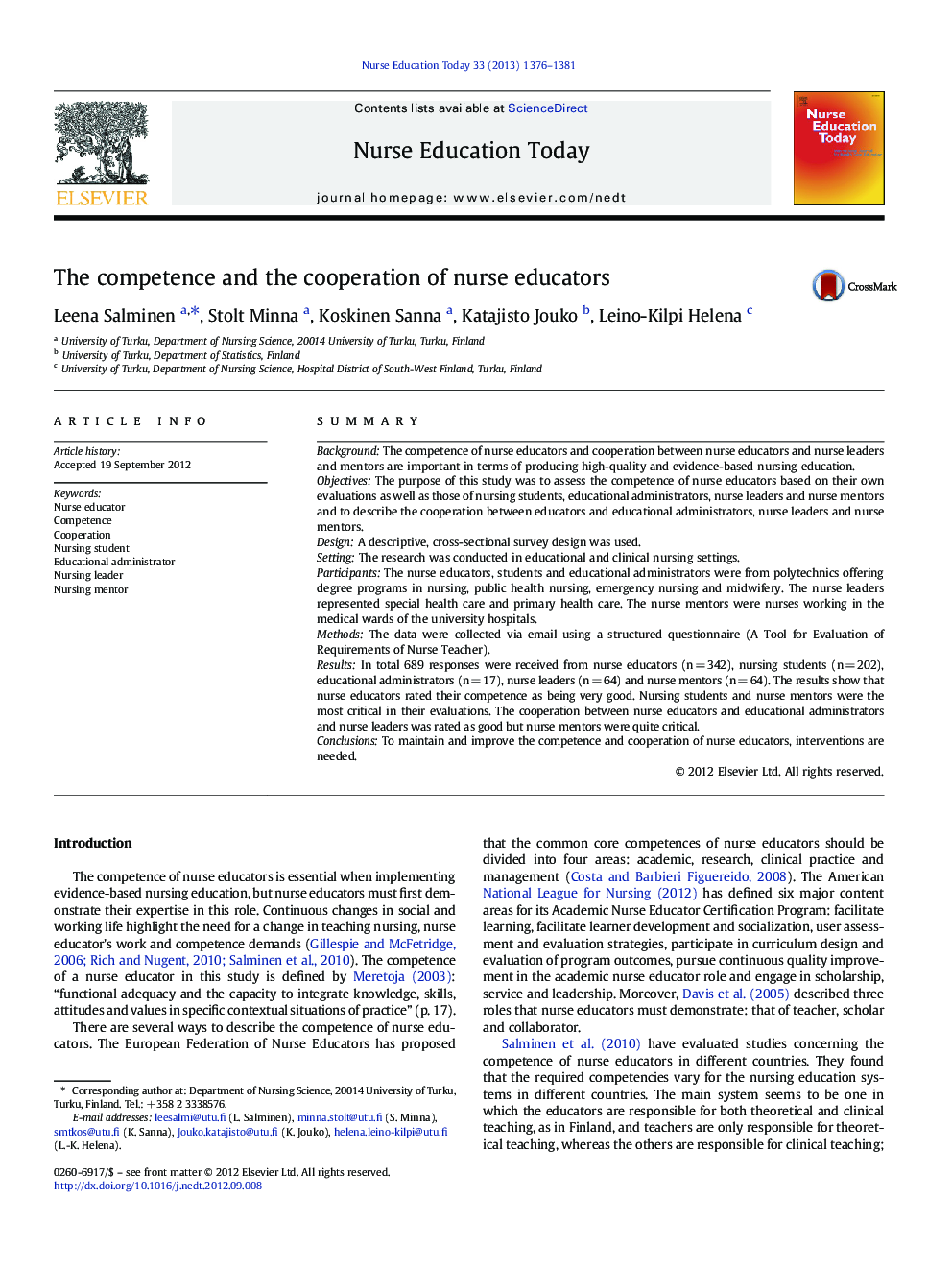| Article ID | Journal | Published Year | Pages | File Type |
|---|---|---|---|---|
| 368286 | Nurse Education Today | 2013 | 6 Pages |
SummaryBackgroundThe competence of nurse educators and cooperation between nurse educators and nurse leaders and mentors are important in terms of producing high-quality and evidence-based nursing education.ObjectivesThe purpose of this study was to assess the competence of nurse educators based on their own evaluations as well as those of nursing students, educational administrators, nurse leaders and nurse mentors and to describe the cooperation between educators and educational administrators, nurse leaders and nurse mentors.DesignA descriptive, cross-sectional survey design was used.SettingThe research was conducted in educational and clinical nursing settings.ParticipantsThe nurse educators, students and educational administrators were from polytechnics offering degree programs in nursing, public health nursing, emergency nursing and midwifery. The nurse leaders represented special health care and primary health care. The nurse mentors were nurses working in the medical wards of the university hospitals.MethodsThe data were collected via email using a structured questionnaire (A Tool for Evaluation of Requirements of Nurse Teacher).ResultsIn total 689 responses were received from nurse educators (n = 342), nursing students (n = 202), educational administrators (n = 17), nurse leaders (n = 64) and nurse mentors (n = 64). The results show that nurse educators rated their competence as being very good. Nursing students and nurse mentors were the most critical in their evaluations. The cooperation between nurse educators and educational administrators and nurse leaders was rated as good but nurse mentors were quite critical.ConclusionsTo maintain and improve the competence and cooperation of nurse educators, interventions are needed.
